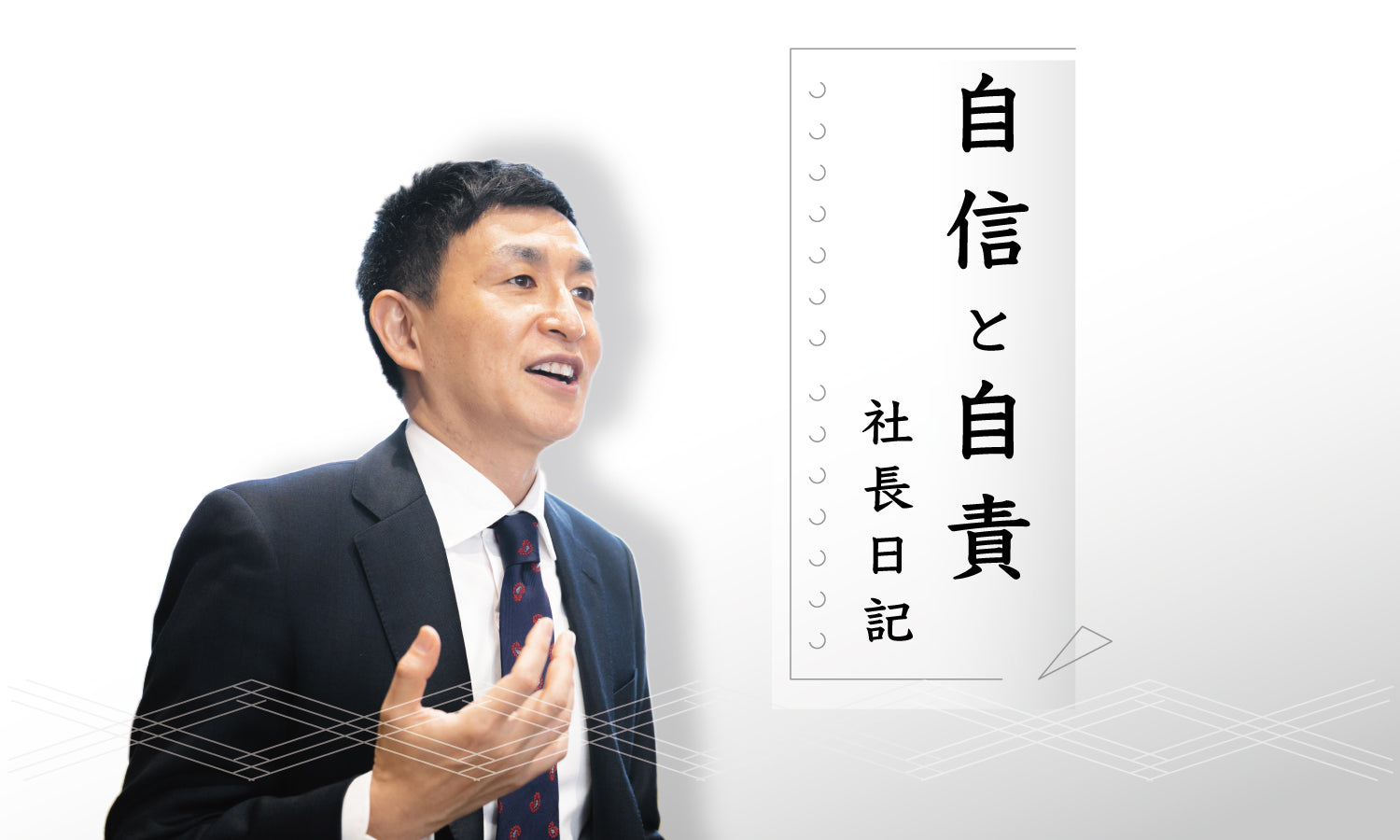President's Diary [Confidence and Self-Reproach]
Online learning, part of this season's theme of "Learning Growth," is the first step to building self-confidence. So why is self-confidence necessary when working in a company? How do you build self-confidence? And what are the pitfalls? We'll discuss this topic along with the past and present of Okafoods.
-How to build self-confidence-
How to build confidence
If you are reading this diary and lack confidence and are worried about it, the quickest way to gain confidence is to keep each small promise you make to yourself.
If you think you can do something, you gain confidence, but if you can't, you lose confidence. If you continue to think like this, you may end up saying, "I can't do it, so I'll decline," when asked to do something new at work.
Rather than thinking about whether you can or can't do something, accept yourself, believe in yourself, and promise yourself, "I'll give it a try." Then, put it into practice and make it a habit. By doing so, you will gain the ability to believe in yourself, which means you will gain confidence.
For example, I used to lack confidence in speaking English because I'm not a native speaker. On the other hand, my wife has no hesitation in speaking English, even if it's not her native language. For her, not being able to communicate in English doesn't mean she's failed. If she can't communicate, she just thinks about what to do next.
What comes at the end of a challenge is not success or failure, but success or growth.
-The relationship between self-confidence and self-blame-
Relationship between self-confidence and remorse
So, does that mean all you need to do is keep trying? Unfortunately, that's not the case. As I said earlier, there is no "failure" in trying, but you may not get the results you expected. So, the next step is to think about how you can get results, and that is self-blame. Thinking "It's okay if it doesn't work out, it's okay if there are no results" is nothing more than blaming others and becoming dependent.
It is important to note here that self-blame does not mean thinking that "it is my fault."
At Oka Foods in the past, at a certain point, there was a trend to "stop blaming others." This in itself is of course a good thing. However, more and more people began to think that self-blame = blaming yourself is good and blaming others = blaming others is bad, and that putting themselves down will get them forgiven. This can only be described as self-preservation. The other person will no longer be able to blame you, so no fights will break out. However, at the same time, there will be no personal growth.
Correct self-blame is "self-cause theory," which involves accepting the present and thinking about the future. While we cannot change other people or the environment we are born into, our future can be changed by the choices and actions we make in this moment. By recognizing that we are the cause of the phenomena that are happening to us and looking at them objectively, we can choose a better future.
This may sound idealistic, but I believe that we need to understand that this is an ideal and still aim for it.
-What kind of person do you want to be?-
What kind of self do you want to be
And with economic growth now in the offing, companies won't grow on their own. Therefore, it's up to you to grow. This doesn't mean you should work long hours for the company. If you want to be in that organization, it's important to think about how you should grow. While it's one thing to be content with the way things are, it may be difficult to succeed there. If you feel your current company doesn't share your views, you should look for a company with similar ideas, or if you don't have one, create one. If you have confidence in yourself, you can choose that path.
If you don't know what to do, it might be a good idea to ask your boss, "What would make you more appreciated?" It's also the boss's role to move subordinates from their comfort zone to their discomfort zone from time to time. Rather than being humble and saying, "I can't do it," having the humility to take a step forward and say, "I'll give it a try," will lead to growth and ultimately confidence. However, avoid painful or difficult situations. From experience, I think that if you want to change your life, it's okay to challenge yourself in the panic zone, depending on your mental state...
There may be nothing beyond the difficulties and hassle. You may also be troubled by new anxieties. Life is a repetition of this cycle. However, each time, you will be left with the self that has endured and overcome. I think that being able to believe in that self is what we call confidence.















